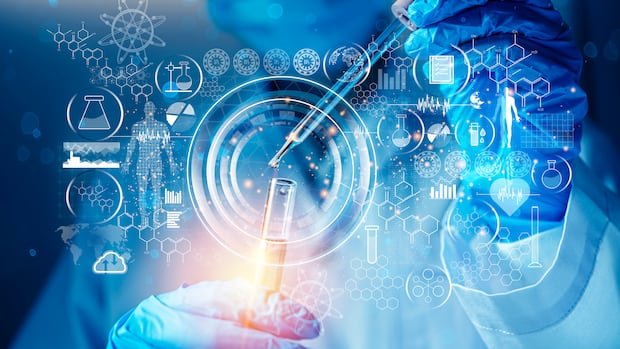In celebration of 50 years of Quirks & Quarks, six prominent Canadian scientists shared their forecasts for the upcoming half-century. The past five decades have witnessed groundbreaking scientific achievements that have reshaped our world, such as the emergence of the internet, the unraveling of the human genome, and the rapid progress in artificial intelligence, altering our perception of the universe.
Looking ahead, the focus shifts to envisioning the future of science. At a live event hosted by CBC Radio’s science program, Quirks & Quarks, in Waterloo, Ont., these experts deliberated on the potential advancements in various fields. From advancements in agriculture to unraveling the mysteries of the cosmos, here are the anticipated frontiers of the next 50 years.
### Evolution of Agriculture
Evan Fraser, the director of the Arrell Food Institute at the University of Guelph, emphasized the challenge of sustainably feeding a growing global population. With projections indicating a population of over 10 billion by the mid-2080s, innovative approaches are essential to prevent environmental strain caused by food production. The focus now shifts towards sustainable agricultural practices that prioritize nutrition, climate mitigation, and efficiency.
### Climate Change Mitigation
Laura Tozer, an assistant professor of environmental studies at the University of Toronto Scarborough, highlighted the existing tools to combat climate change. Transitioning from fossil fuels to renewable energy sources like wind and solar power is crucial. Tozer envisions a future where clean energy seamlessly integrates into every Canadian household, promoting a cleaner and sustainable environment.
### Genetic Medicine Advancements
Yvonne Bombard, a genomics health services researcher at Unity Health St. Michael’s Hospital, discussed the advancements in personalized medicine driven by genetic research. Tailoring treatments based on an individual’s genetic makeup could revolutionize healthcare by providing more effective and personalized interventions. However, ensuring diversity in genetic data is crucial to enhance the accuracy of medical interventions for all populations.
### Enhanced Human Abilities through Robotics
Ana Luisa Trejos, a professor in electrical and computer engineering at Western University, shared insights on wearable exoskeletons that could enhance human capabilities. These advanced robotic systems, powered by brain implants, have the potential to revolutionize prosthetics and amplify human performance beyond natural abilities.
### Unraveling the Universe
Katie Mack, a theoretical astrophysicist at the Perimeter Institute for Theoretical Physics, delved into the mysteries of dark matter and dark energy that dominate the cosmos. Researchers worldwide are striving to decode these enigmatic forces, with the hope of unveiling groundbreaking discoveries that could reshape our understanding of the universe.
### Artificial Intelligence Trends
Luke Stark, an assistant professor at Western University, discussed the prevalent integration of artificial intelligence in various aspects of daily life. While AI technologies like ChatGPT are becoming ubiquitous, Stark remains skeptical about the emergence of machines with human-like cognitive abilities in the near future. The ethical implications and societal impacts of AI development will continue to be subjects of ongoing discussions.
The insights shared by these scientists offer a glimpse into the potential advancements that could shape the future of science and technology in the coming decades.


